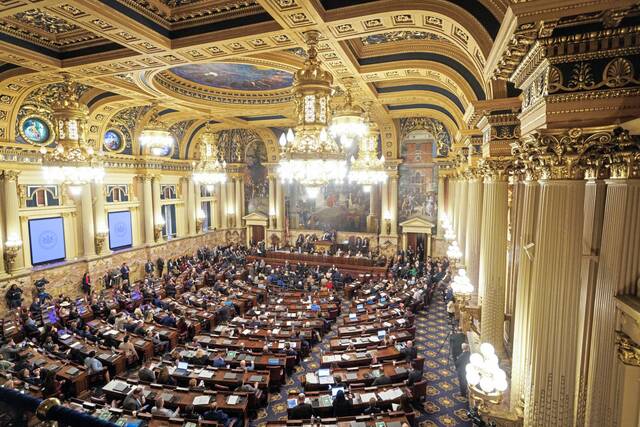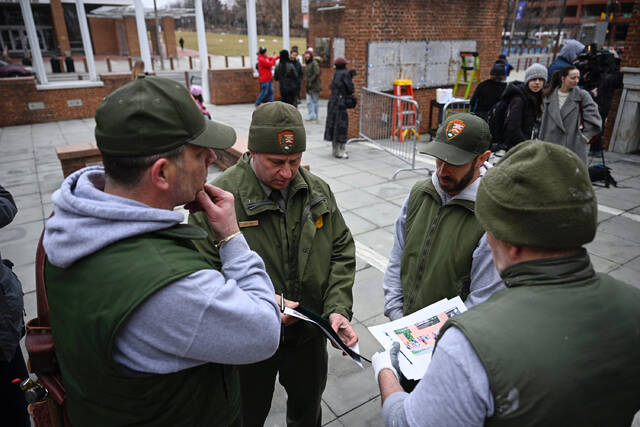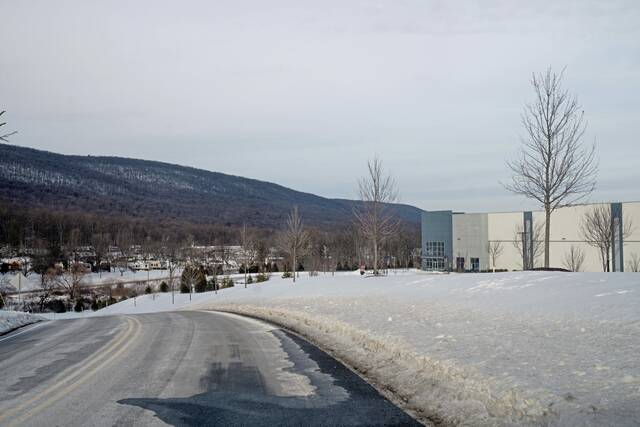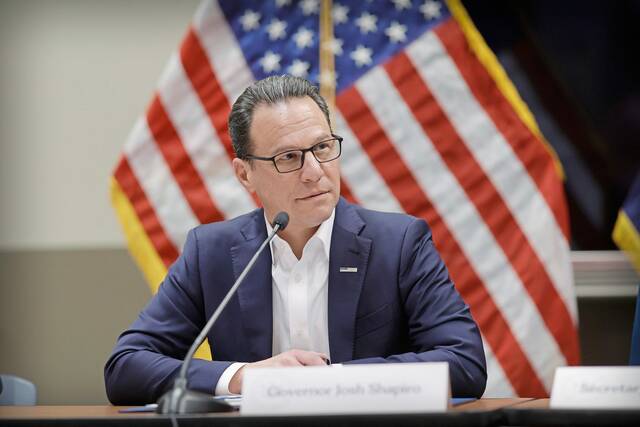State officials released a slew of recommendations Thursday regarding how Pennsylvania schools can safely reopen in the fall, addressing everything from lunch and recess to busing and extracurricular activities.
Whether in-person classes resume will be left to each individual school district, all of which have been charged with creating a health-and-safety plan that will address those types of issues.
Among the state’s recommendations:
• Masks must be worn on buses and in school by students and staff with some limited exceptions, including while eating or drinking;
• Parents should do daily symptom screenings before their children go to school;
• Students and staff should try to keep socially distanced during classes and in hallways, and desks and other seating should be 6 feet apart;
• Classes should be held in larger areas such as gymnasiums and auditoriums and even outside, if possible;
• Students’ desks should face the same direction;
• When possible, stagger class times, create one-way hallways and rotate teachers among classrooms instead of rotating students;
• Consider serving individually packaged meals for breakfast and lunch, and avoid seating students directly across from one another during meals;
• Limit the number of students on the playground at any one time;
• Encourage virtual events and extracurricular activities.
The guidance includes recommendations for even the most benign interactions and activities.
For example, they suggest that bus seats be filled from back to front to limit the number of students passing by each other in the narrow aisles. Another suggests assigning lockers in cohorts — students in one classroom have lockers near each other — or eliminating locker use altogether.
The recommendations also address accommodating special-needs students, providing face-mask breaks and permitting school visitors. There is guidance on symptom-monitoring, contract tracing and communicating about potential and confirmed cases.
Following best practices will help ensure a safe return, Secretary of Health Rachel Levine said.
“We all agree that being back in school is the best outcome for children,” she said. “They gain so much in terms of education and the other services that are provided.”
Public health, she said, is just as important. Part of the balancing act is to mitigate the spread of covid-19 now to reduce the risk of outbreaks in the fall. Levine said doing so will lower the odds that state officials are faced with the possibility of shutting down schools again as they did in the spring.
She said keeping students and staff safe in the fall starts now.
“If people are not taking covid-19 seriously, you can see what happens in a state where the governor and the administration have let it burn,” she said, specifically noting Florida and the growth of new cases in recent weeks.
“If you have that exponential growth of covid-19 … we can’t put our children’s health at risk; we can’t put our staff’s health at risk and our communities’ health at risk.”
The Pennsylvania State Education Association on Thursday urged State Secretary of Education Pedro Rivera and Gov. Tom Wolf to require schools to have plans in place for online-only education should cases across the state continue to trend upward.
Planning is paramount, said PSEA President Rich Askey, particularly when the virus and best practices can change on a dime.
“That is why it is absolutely essential that every public school entity in Pennsylvania is prepared to deliver online instruction. School entities that have not already developed plans for online instruction must immediately create them,” Askey said.
He said the best case for everyone is to return to school, but there needs to be a plan in place should that not be possible.
“Unfortunately,” he said, “an increasing number of Pennsylvania educators and parents are concerned that reopening schools for in-person instruction poses significant health risks that, in the current environment, may be impossible to completely prevent.”
Rivera said each district will make its own decisions and have to weigh — and balance — health and education.
“If we have to take into account the best practices from both a health and public health perspective and education and public education perspective, I would say that as school districts are starting to plan today, a hybrid approach is a good model,” he said.
Flexibility will be key, he said. A cookie-cutter approach cannot cater to the state’s 500 school districts, each with unique needs, populations and communities, he said.
“What school leaders have to do,” he said, “is take all of the data … and then make decisions that best represent the needs of their communities.”








